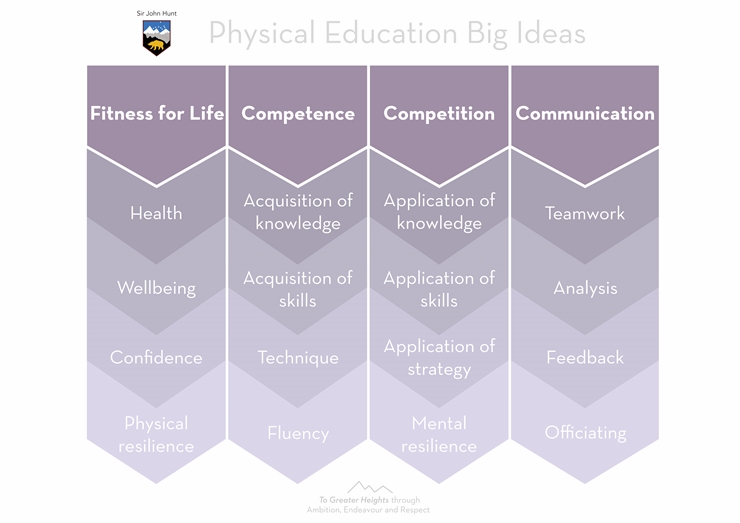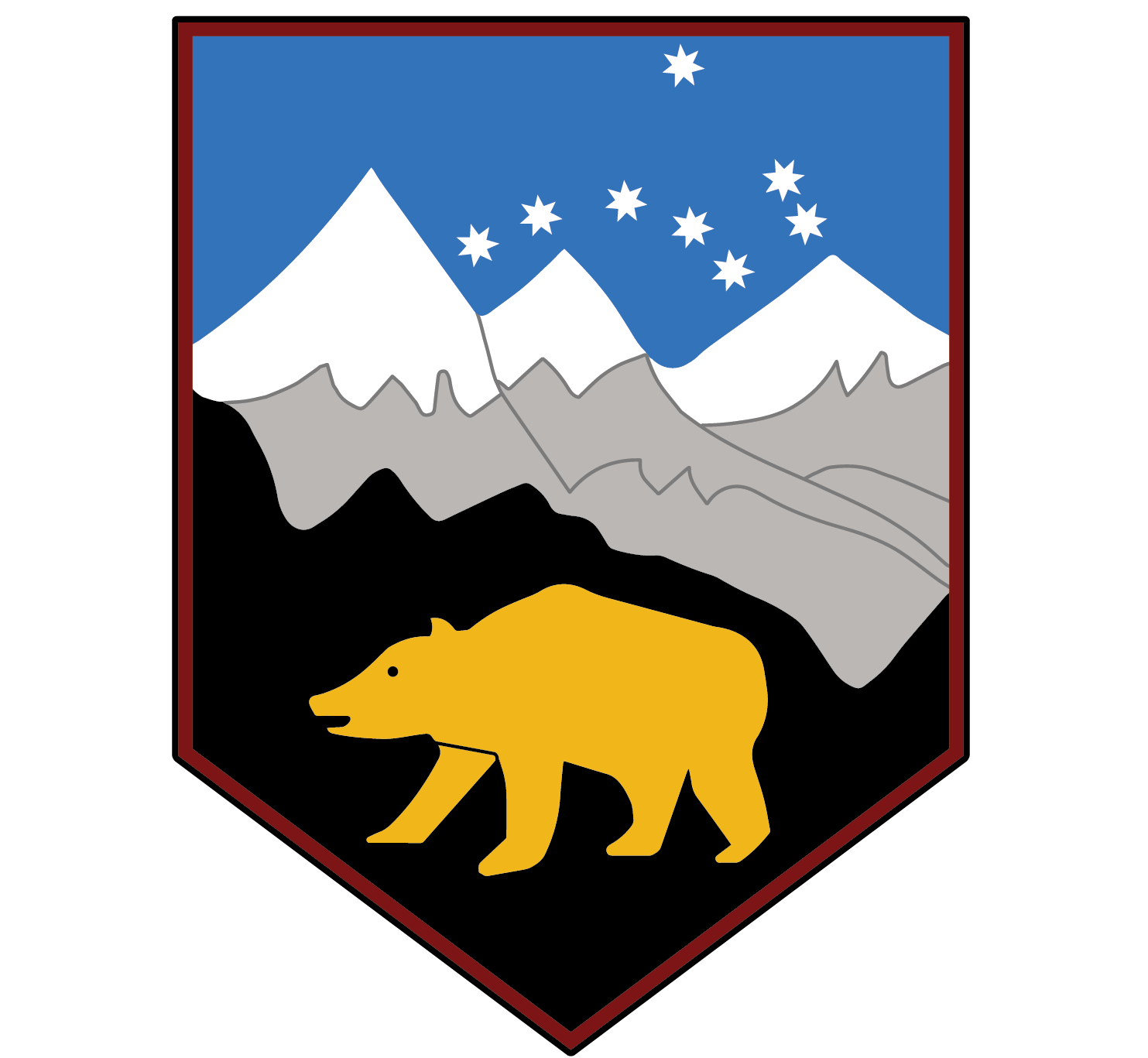PE & Sport
Intent
At Sir John Hunt, our PE curriculum develops young adults who make informed, healthy lifestyle choices, prioritising physical and mental well-being, and embracing lifelong participation in physical activity.
PE is more than sport; it builds fitness for life, confidence, resilience, and essential life skills. We develop physical competence alongside teamwork, leadership, and communication. Students take responsibility for their learning—leading warm-ups, officiating, or collaborating with peers—while demonstrating sportsmanship, perseverance, and respect.
Through reflection and analysis, students build a growth mindset that extends beyond sport. They gain independence, assess performance, and give constructive feedback, developing both technical and strategic thinking.
We promote mental well-being by encouraging outdoor activity, fresh air, and positive learning experiences. Students learn the broader benefits of an active lifestyle and view sport as a route to a healthier future.
Our curriculum also highlights career opportunities in sport, from physiotherapy and coaching to psychology and nutrition. By engaging in competition and teamwork, students gain valuable, transferable skills.
Ultimately, PE at Sir John Hunt creates lifelong memories, fosters friendships, and instils a lasting appreciation of physical activity, preparing students for a healthy, active future.
Fitness for life. Competition. Communication. Competence
Big Ideas

Overview
Year 7
Students in Year 7 focus on developing their fundamental movement and motor skills, building on the knowledge acquired in primary school. They participate in a broad range of team and individual sports, including football, netball, fitness for life, basketball, badminton, rugby, rounders, cricket, and conclude the year with athletics. The emphasis is on enjoyment, engagement, and establishing a strong foundation in physical education.
Year 8
In Year 8, students continue to refine and develop the key skills introduced in Year 7. Through a spiral curriculum, they revisit sports such as football, netball, fitness for life, basketball, badminton, rugby, rounders, cricket, and athletics. The focus is on enhancing technique, understanding rules in greater depth, and beginning to apply tactical awareness within games and activities.
Year 9
Students in Year 9 further develop their physical skills and game understanding through continued participation in the same range of sports. They build on previous learning with a greater emphasis on performance analysis, teamwork, and decision-making. Lessons also encourage personal development, resilience, and leadership within sport and fitness contexts.
Year 10
In Year 10, students apply the skills, knowledge, and understanding gained in previous years with increased independence and sophistication. They continue to engage in football, netball, fitness for life, basketball, badminton, rugby, rounders, cricket, and athletics. There is a stronger focus on competitive performance, self-evaluation, and preparation for continued participation in physical activity beyond school.
Theory: Year 10
In Year 10, students begin their Cambridge National Sport Studies (Level 2) qualification, which is predominantly coursework-based. They explore the role of media within sport, analysing different types of media and their impact on sports clubs and audiences. Alongside this, students develop their practical performance and leadership skills through assessment in two chosen sports. They plan, deliver, and evaluate a structured PE session, fostering critical thinking, self-assessment, and an understanding of how media influences modern sport.
Year 11
Year 11 students study the Contemporary Issues in Sport unit, which culminates in an external examination. They examine barriers to participation and explore strategies to improve inclusivity across age, gender, ethnicity, and ability. Learners consider the cultural and economic impact of major sporting events and analyse how governing bodies manage and promote sport. Students are also introduced to technological developments in sport and investigate current ethical and socio-cultural issues, preparing them to apply their understanding to real-world scenarios through discussion and written analysis.
Year 12
In Year 12, students commence the Cambridge Technical Level 3 in Sport and Physical Activity. They begin with an in-depth study of the body systems and the effects of physical activity, covering anatomical and physiological principles that underpin performance and health. This foundational knowledge supports future study and career pathways in areas such as fitness, personal training, and rehabilitation. The year focuses on developing scientific understanding alongside practical application, promoting a holistic approach to sport and wellbeing.
Year 13
Year 13 students continue with the Level 3 qualification by studying sports organisation and development, sports injuries and rehabilitation, and the organisation of sports events. They gain insight into the structure and function of sports governing bodies, the importance of sports development, and strategies for increasing participation. Students also learn to identify and manage sports injuries, supporting safe rehabilitation. Additionally, they acquire the skills to plan and deliver a sports event, enhancing their leadership, teamwork, and event management abilities in preparation for careers within the sport and active leisure industries.
